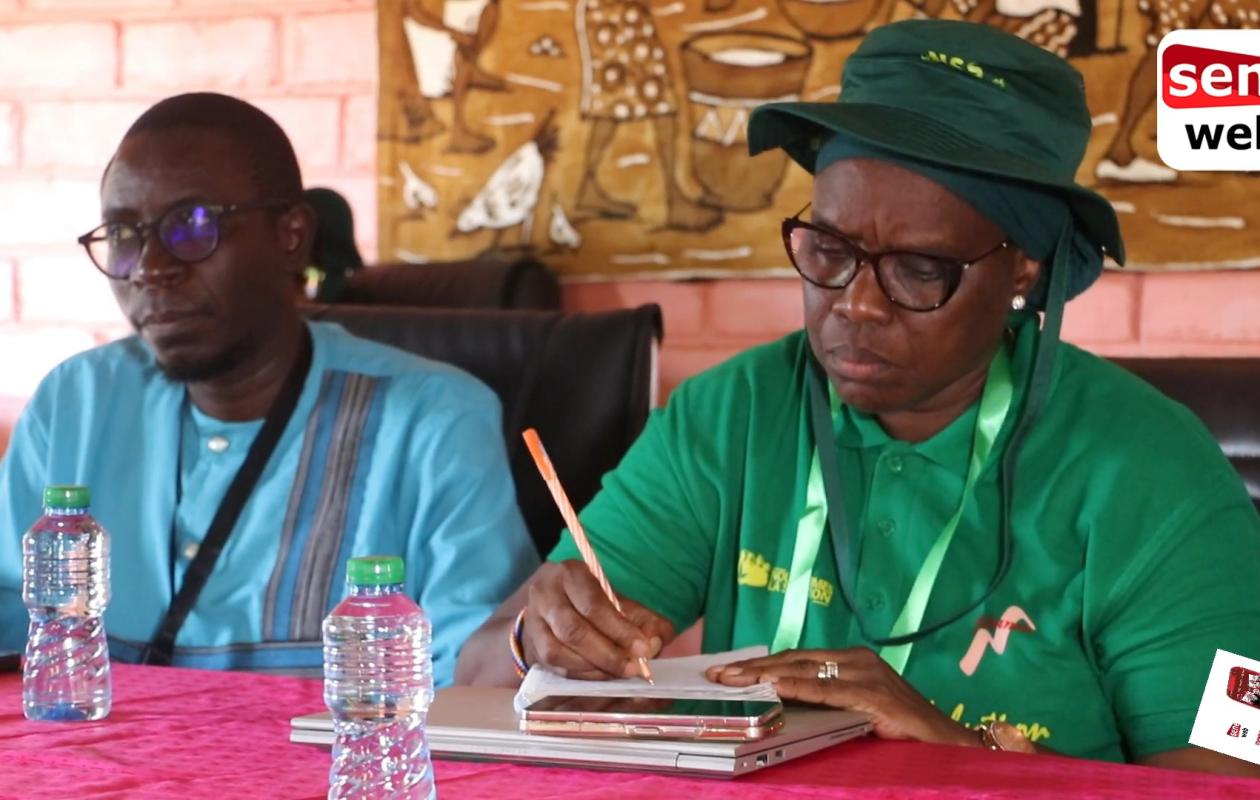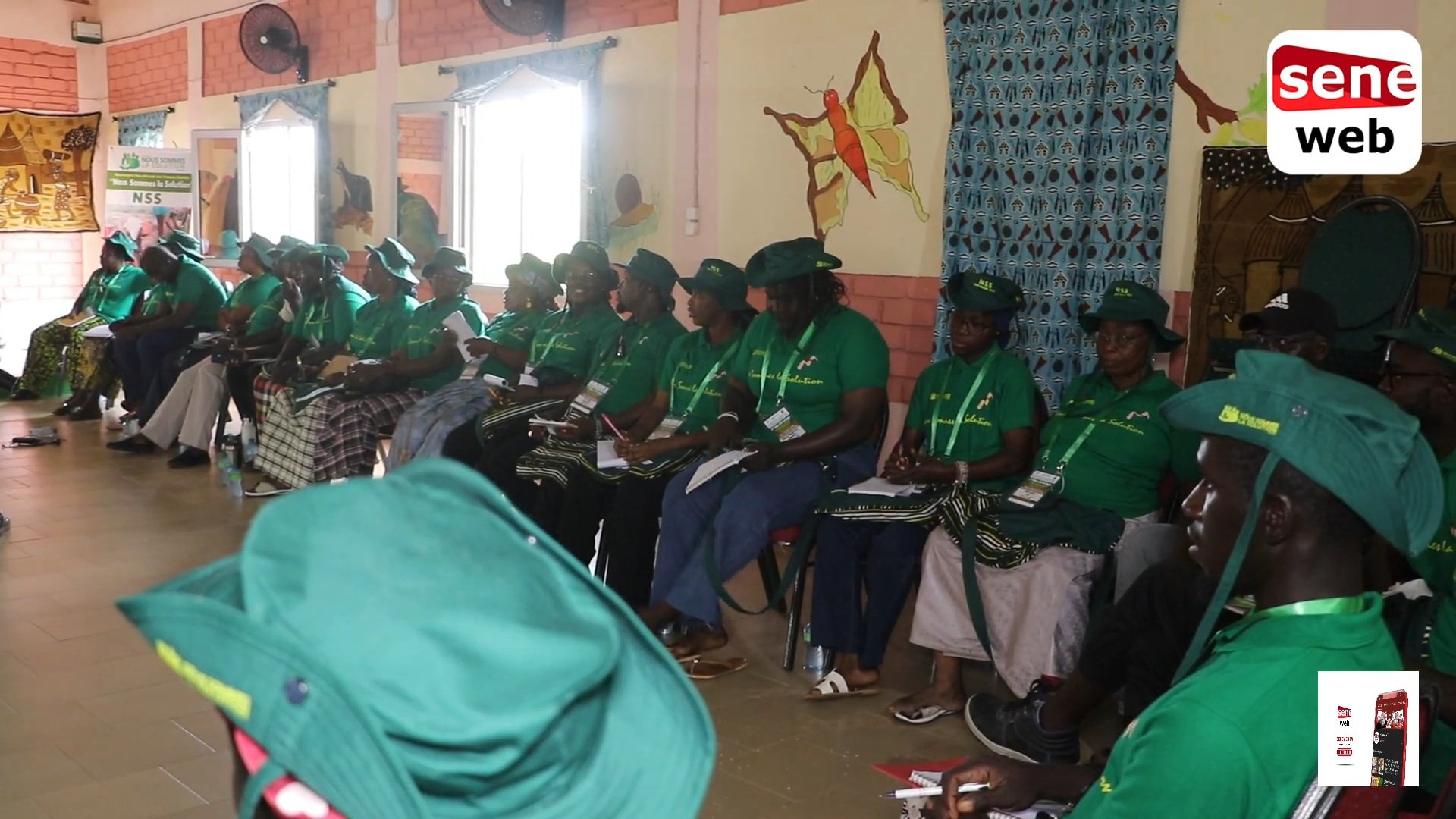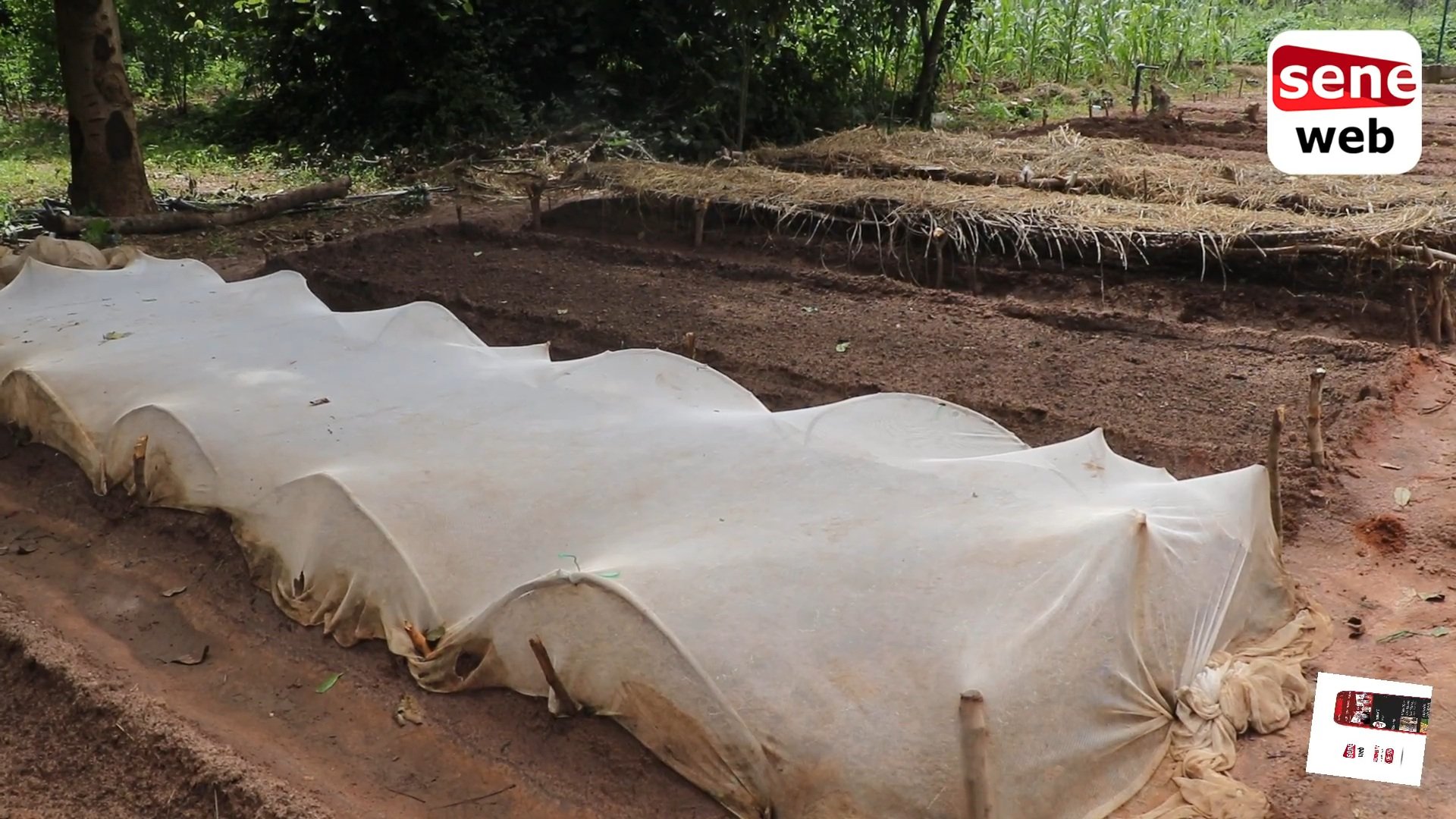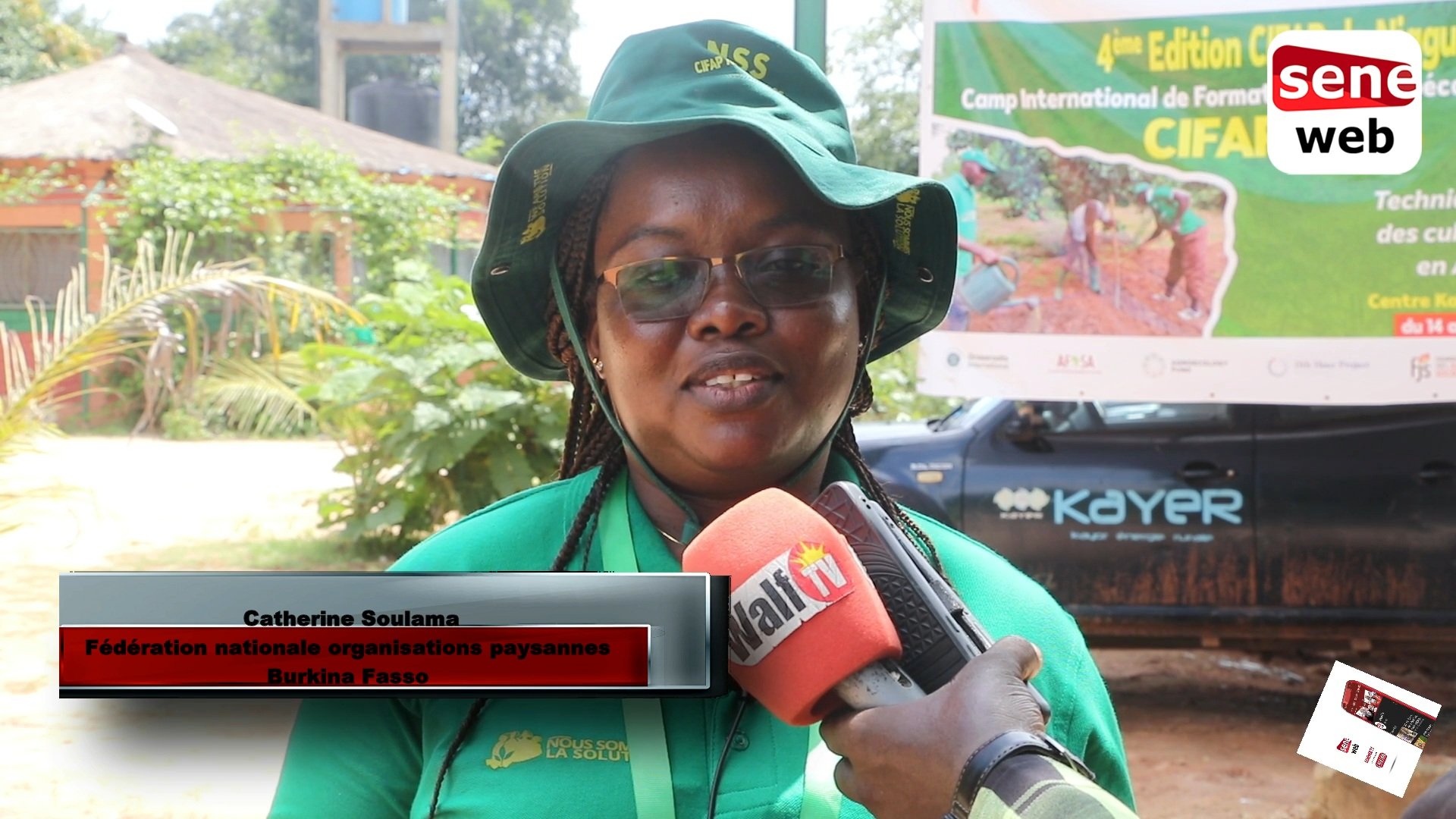
Agroécologie et changement de paradigme pour une souveraineté alimentaire : À Niaguis, les organisations paysannes de l’Afrique de l’Ouest portent le plaidoyer
After a week-long immersion at the Niaguis agroecological center, women's peasant organizations from Burkina Faso, Gambia, Ghana, Guinea-Bissau, Guinea, Ivory Coast, Mali, and Senegal are returning home strengthened and better equipped to help their respective communities promote agroecology and raise awareness of the need to break with intensive agriculture. It is up to them to advocate for community involvement with their governments to support agroecological practices, the only way, in their view, to achieve food sovereignty and healthier diets.
This camp brought together around a hundred participants, both novices and experienced, on the theme of "Techniques for managing horticultural crops in agroecology".
Fatou Bintou Diop, president of the Union of Peasant Groups of Mékhé in Tivaouane and treasurer of the organization We Are the Solution, says the camp was very beneficial: "We learned about spacing, nursery time, nurseries with cells, soil preparation, and how to test the soil. We also shared a lot of information. It was a very interesting training." And according to her, agroecology can help boost production in Senegal.
A healthy practice that doesn't use fertilizers or pesticides, and which, in Burkina Faso, is beginning to have an impact under the transitional regime, according to Catherine Soulama, a member of the National Federation of Peasant Organizations. For her first experience at this international agroecology camp, she says she's returning with a wealth of learnings about new practices that can serve her community, which is facing a lack of space due to insecurity.
"During the training we received here, we practiced soilless cultivation. When I take the specific case of my country, we are currently facing a problem of insecurity. We have the massive displacement of populations towards the city. This soilless technique can bring a plus to my community, because I could help internally displaced people and even the population to assimilate these methods," Soulama rejoices.
"In Burkina Faso, our authorities are promoting agroecology in schools and among internally displaced people. So, if an internally displaced person has a small space, with the soilless cultivation we have just learned, we can further support them in farming and eating healthily," added the Burkinabé.
Monique Noumo Konan, coordinator of Nous sommes la solution in Côte d'Ivoire, a regular at the camp, says she "spent almost a week learning the best practices of agroecology. And what I learned a lot this year was to make agroecology a little more formal to say that agroecology is not anarchy, it is not something disorderly, not well-ordered. And this year, we learned how to diagnose the health of a soil. Then what to bring to the soil." And this year's camp will allow them to be even more professional in this agricultural practice, she assured us.
Monique Noumo Konan calls on the women of Senegal to embrace agroecology. She urges African authorities to support the promotion of this agriculture, which respects people, biodiversity, the climate, and health. "This is an agriculture that will not cause us problems and will allow us to achieve food sovereignty, in good health, and while protecting the environment and the climate," she concluded.
From around thirty participants in the first year, this camp now has around a hundred members. "There is a commitment from stakeholders to promote agroecology. Because in the first year, we had to invite around thirty people. But as we progress, the demand to participate in this international camp is extreme because the results are visible. At the country level, people are seeing that there is a real evolution in the different practices," Mariama Sonko maintained.
A sufficient reason for the president of the Pan-African movement We Are the Solution to be reassured about the relevance of this type of agriculture, which is of increasing interest to young people, beyond women. Mariama Sonko, to make it known that "in agroecology, we seek food sovereignty. And to be sovereign, you must achieve the right to produce what you want to eat and also have the opportunity to do so," Ms. Sonko affirmed.



Commentaires (0)
Participer à la Discussion
Règles de la communauté :
💡 Astuce : Utilisez des emojis depuis votre téléphone ou le module emoji ci-dessous. Cliquez sur GIF pour ajouter un GIF animé. Collez un lien X/Twitter, TikTok ou Instagram pour l'afficher automatiquement.